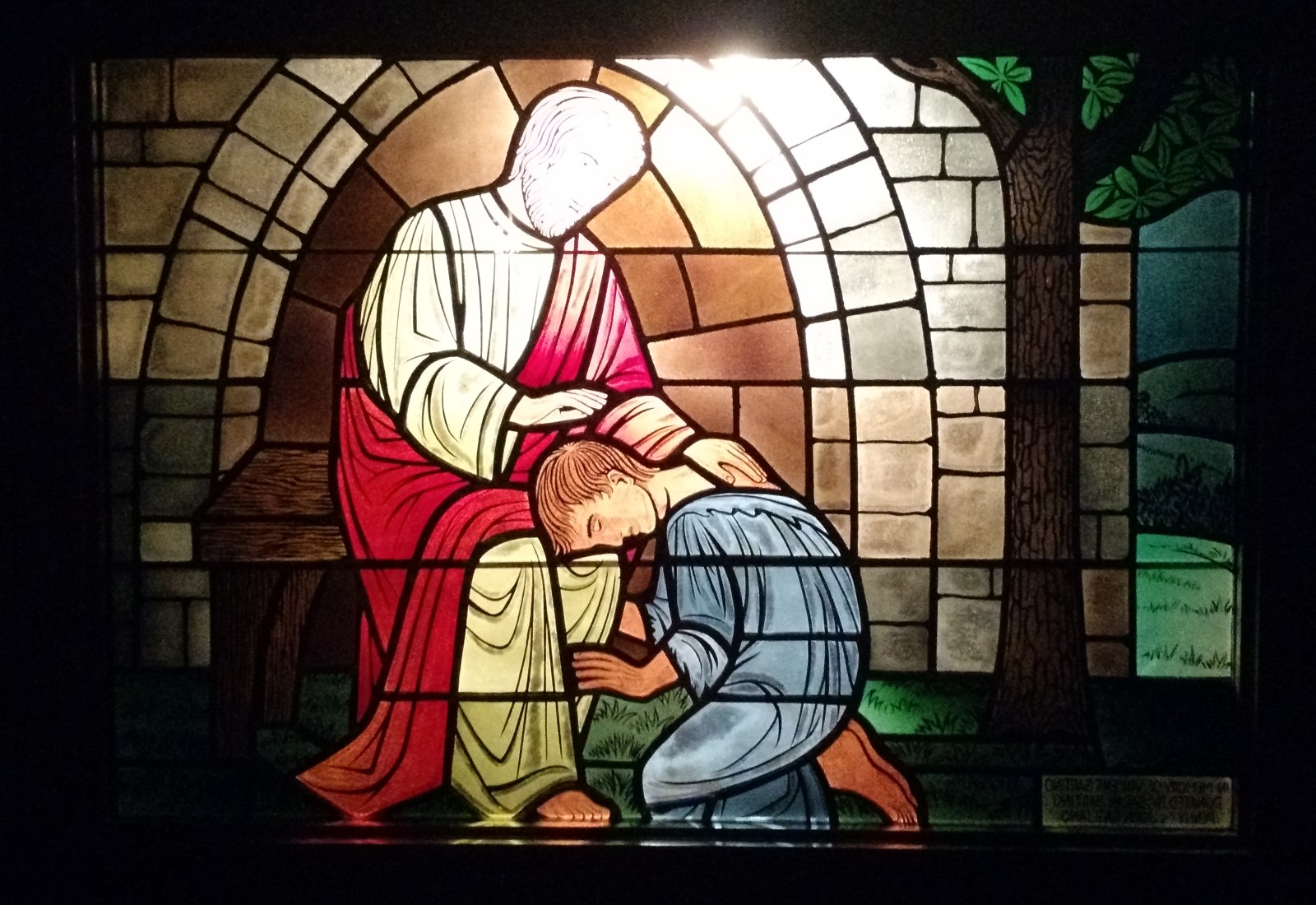|
Is happiness the absence of suffering? Well, possibly not all suffering is bad, possibly there is a just type of suffering. In Psalm 32, David calls our attention to the blessed feeling of having your sin forgiven. There's a suffering which we inflict on ourselves that can, if left unchecked, confessed, literally eat us alive. It is this type of suffering that Psalm 32 addresses when David writes, "For when I kept silent, my bones wasted away through my groaning all day long. For day and night your hand was heavy upon me; my strength was dried up as by the heat of summer.” A heart which tries to live autonomously, apart from the goodness of God will experience this type of crushing weight. Luther wrote, “Where do you find more pitiful, miserable words of sadness than in the psalms of lamentation? There you see into the heart of all the saints as into death, even as into hell. How sad and dark it is there in every wretched corner of the wrath of God” The way out from under this wrath is confession, to be absolved and have one’s sin forgiven. David concludes Psalm 32 with this striking contrast between the wicked and the righteous, or to put it more plainly, between those try to deal with sin on their own, and those who look to God for deliverance. He says, “Many are the sorrows of the wicked, but steadfast love surrounds the one who trusts in the Lord. Be glad in the Lord, and rejoice, O righteous, and shout for joy, all you upright in heart!” Regarding praying this, and other Psalms, as personal confessions, Bonhoeffer offers us these deeply encouraging thoughts; “But the question is not what possible motives stand behind a prayer, but whether the content of the prayer itself is true or false. Here it is clear that believing Christians have something to say not only about their guilt, but also something equally important about their innocence and righteousness. To have faith as a Christian means that, through the grace of God and the merit of Jesus Christ, the Christian has become entirely innocent and righteous in God’s eyes—that “there is therefore now no condemnation for those who are in Christ Jesus” (Rom. 8:1). And to pray as a Christian means to hold fast to this innocence and righteousness in which Christians share, and for which they appeal to God’s Word and give God thanks. If in other respects we take God’s action toward us at all seriously, then we not only may, but plainly must, pray in all humility and certainty: “I was blameless before [God], and I kept myself from guilt” (Ps. 18:24 [23]); “If you test me, you will find no wickedness in me” (Ps. 17:3).24 [128]With such a prayer we stand in the center of the New Testament, in the community of the cross of Jesus Christ. The assertion of innocence comes out with particular emphasis in the psalms that deal with oppression by godless enemies. The primary thought here is of the justice of God’s cause, which also, to be sure, vindicates the one who embraces it. The fact that we are persecuted for the sake of God’s cause really places us in the right over against the enemy of God. Alongside objective innocence, which can of course never be really objective because the fact of the grace of God likewise always meets us personally, there can then stand in such a psalm the personal confession of guilt (Pss. 41:5 [4], 69:6 [5]). This is again only a sign that I really embrace God’s cause. I can then ask even in the same breath: “Vindicate me, O God, and defend my cause against an ungodly people” (Ps. 43:1). It is a thoroughly unbiblical and destructive idea that we can never suffer innocently as long as some kind of fault still remains in us. Neither the Old nor the New Testament makes such a judgment. If we are persecuted for the sake of God’s cause, then we suffer innocently, and that means we suffer with God. That we really are with God and, therefore, really innocent is demonstrated precisely in this, that we pray for the forgiveness of our sins. But we are innocent not only in relation to the enemies of God, but also before God, for we are now seen united with God’s cause, into which it is precisely God who has drawn us, and God forgives us our sins. So all the psalms of innocence join in the hymn: “O blood of Christ, O Lord of Righteousness / my Robe of Honor, my Adorning dress, / Before God’s throne I’ll be clothed with you / When in heavenly glory I’ll live anew.” Bonhoeffer, Dietrich. Life Together and Prayerbook of the Bible: Dietrich Bonhoeffer Works Vol. 5 (Kindle Locations 3711-3735). Fortress Press. Kindle Edition.
0 Comments
Your comment will be posted after it is approved.
Leave a Reply. |
Our Podcast can be found on:
Categories
All
|
||||||
Office HoursM-Th: 9am - 3pm
|
Telephone204-888-4338
|
|

 RSS Feed
RSS Feed


